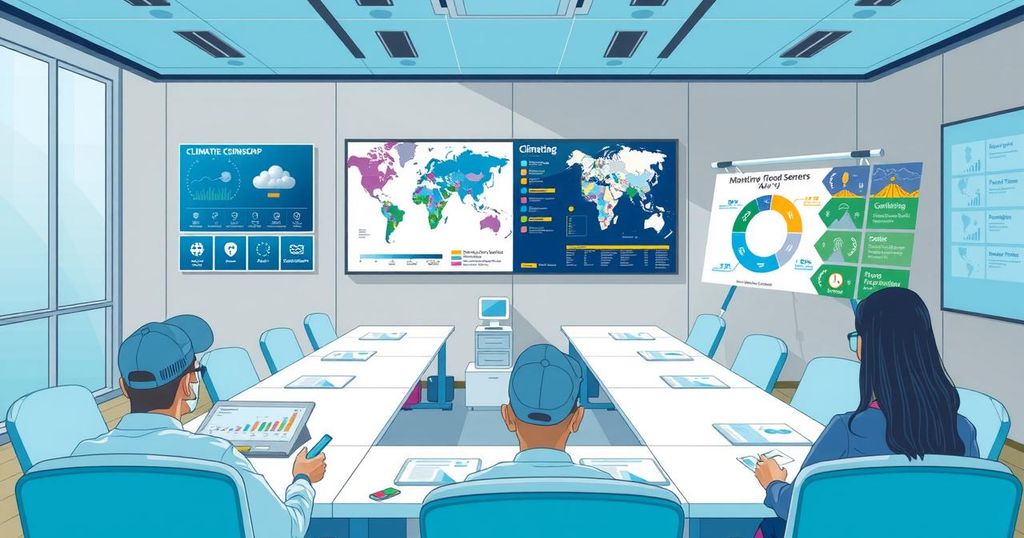Strengthening Climate and Disaster Risk Management in Togo through International Collaboration

UNDRR, in partnership with the Green Climate Fund and West African Development Bank, hosted a workshop in April 2025 in Incheon, South Korea, to strengthen Togo’s disaster risk management. Key national stakeholders participated, focusing on practical tools for disaster risk reduction, climate change adaptation, and early warning systems. The event concluded with reflections and a plan for future training initiatives in Togo to bolster climate resilience.
The United Nations Office for Disaster Risk Reduction (UNDRR), in collaboration with the Green Climate Fund (GCF) and the West African Development Bank (BOAD), conducted a technical workshop from April 8 to 11, 2025, in Incheon, South Korea. This event aimed to strengthen the skills and knowledge of key stakeholders in Togo regarding climate and disaster risk management, particularly in light of the GCF co-funded project titled ‘Strengthening the resilience of vulnerable communities within high climatic and disaster risk areas in Togo.’ The workshop gathered essential representatives from multiple national agencies to enhance capacity for disaster risk reduction (DRR) initiatives.
During the workshop, participants from Togo’s key institutions, including the National Agency for Civil Protection (ANPC) and the Togolese Meteorological Agency (ANAMET), were engaged in discussions facilitated by UNDRR and other partners. The sessions focused on crucial topics like disaster risk reduction, climate change adaptation, multi-hazard early warning systems, and project monitoring and evaluation. Participants examined frameworks such as the Sendai Framework and the Paris Agreement, aiding in the coordination of the GCF’s project in Togo.
The event also introduced practical tools designed to assist in disaster risk management, including Sendai Framework Monitor Custom Indicators and the Disaster Resilience Scorecard for Cities. Insights from the integrated disaster management system in Korea were shared, showcasing how technology and inter-agency cooperation can optimize disaster readiness and response. Notably, a key focus was placed on the effective collaboration required amongst various sectors for disaster management.
A field visit to the Incheon Metropolitan City Safety Situation Division provided a real-world context to the workshop’s teachings, highlighting advanced monitoring systems utilized for disaster preparedness. Participants recognized the significant importance of leveraging technology to enhance local resilience. Insights such as those from Yoma Baka, Director General of ANPC, suggested that the visit inspired future operations in Togo, stating, “The visit has given us a lot of inspiration for setting up our operations room in coordination with UNDRR.”
The workshop concluded with an action planning session for the national implementation of the SAP048 project. Participants acknowledged the commitment to apply learned principles in their efforts to bolster climate resilience in Togo. Outcomes of the training are expected to lead to further implementation activities that will involve additional training for stakeholders across Togo in the near future. Sanetienone Damorou, the National Focal Point for the project, remarked, “We now have more inspiration to better innovate in disaster management.”
The joint initiative by UNDRR, GCF, BOAD, and other partners marks a significant step toward enhancing Togo’s resilience to climate and disaster challenges. Through targeted training, practical tools, and collaborative efforts, stakeholders are better equipped to implement disaster risk reduction and strengthen community preparedness. The workshop serves as a milestone in Togo’s commitment to safeguarding vulnerable populations against climate threats, fostering lasting partnerships to realize these goals.
Original Source: www.preventionweb.net






